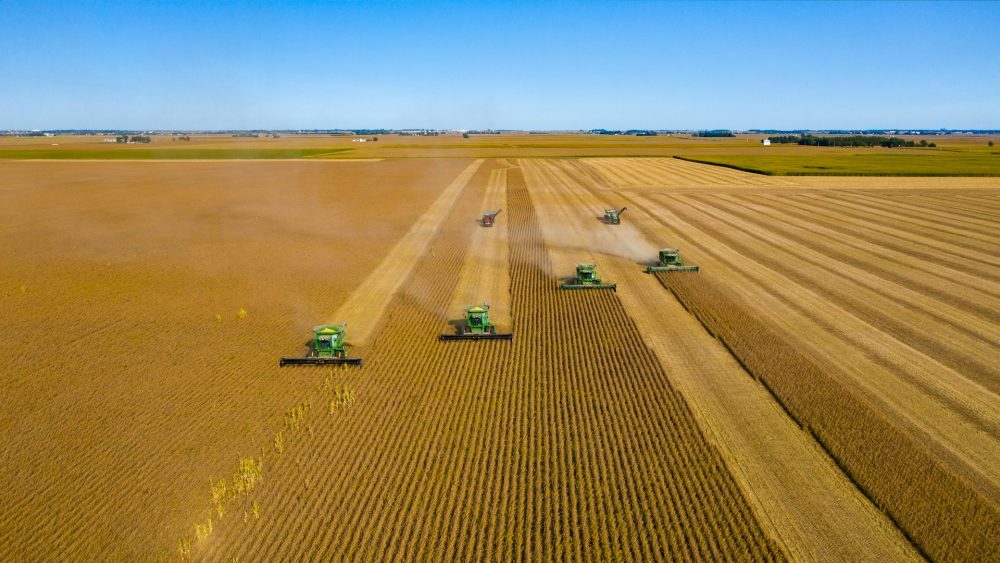Business
Services Gain Ground in the Post-Covid Recovery
In the post-Covid recovery, the services sector is leading the charge, with recent data showing +4.8% growth above pre-pandemic levels. Building construction services and secondary industry are also recording strong recovery. Meanwhile, the broader economy, while registering growth, is still trailing pre-pandemic levels. The latest European data suggests GDP is currently trailing 2019 by 0.8%.

How does the services sector recover from the crisis? Covid-19 brought a halt to the world economy, and the indices that measured European activity plummeted in April and May 2020.
To keep up to date with the latest news in business, finance, and the post-Covid economic recovery, take a moment to download our free financial news app.
Services Record Strong Post-Covid Bounceback
Industry, construction, services, and commerce recorded their most significant drop in activity since there were records, but since then, the economy has picked up, and now they have even exceeded the levels of February two years ago.
The sector that has increased the most compared to the pre-pandemic stage is that of services. Between February and April 2020, there was a 16% drop in activity, but in March 2022 it managed to reach pre-pandemic levels, registering 7.8% more than the same period from two years ago, according to data published by Eurostat.
Currently, with the start of the war in Ukraine, services are the sector with the highest activity index, now registering at 118 points.
Commerce Recovery Is Second to Services Sector
Commerce ranks second behind services in the post-pandemic recovery two years later. The volume of merchandise transacted in the European Union also fell significantly between February and April 2020, more than 20%, but since June 2020, its trend has been positive.
In February 2022, the sector recorded an increase of 4.8% compared to the pre-pandemic period.
Even so, commerce has registered a more irregular evolution than services, registering decreases and increases throughout the last months.
Secondary Industry Has Also Recovered
Regarding industry, its activity also fell below 20% with the arrival of the pandemic. Specifically, the secondary sector registered a 26.8% decrease in its activity in April 2020.
However, since then, the activity has been increasing until reaching pre-pandemic levels and even registering a slight increase last April, of 1.9%.
Building Construction Services Make +1.8% Post-Covid Recovery
As for building construction services, activity fell by 25% from February to April 2020. A year later, in March 2021, pre-crisis levels had almost been reached. Now, the latest data from April 2022 show that activity in building construction services has grown further to 1.8% above its pre-pandemic levels.
Euro Economy Registers 5.4% Growth, Still Trails Pre-Pandemic Levels
The European economy as a whole grew by 5.4% in 2021 but still has not reached pre-pandemic levels.
Specifically, the combined 2021 Gross Domestic Product (GDP) of the 27 Euro countries was 0.8% below that registered in 2019, after it was cut by 5.9% in 2020.
Although this year had started well for the continent’s economy, with a 5.4% increase in GDP in the eurozone, the war in Ukraine has frustrated the EU’s growth aspirations.
According to the Union’s forecasts, it is estimated that the eurozone economy will grow by 2.7%, and inflation will reach an all-time high of 6.8%.
__
(Featured image by Cytonn Photography via Unsplash)
This article may include forward-looking statements. These forward-looking statements generally are identified by the words “believe,” “project,” “estimate,” “become,” “plan,” “will,” and similar expressions. These forward-looking statements involve known and unknown risks as well as uncertainties, including those discussed in the following cautionary statements and elsewhere in this article and on this site. Although the Company may believe that its expectations are based on reasonable assumptions, the actual results that the Company may achieve may differ materially from any forward-looking statements, which reflect the opinions of the management of the Company only as of the date hereof. Additionally, please make sure to read these important disclosures.
First published in Planta Doce, a third-party contributor translated and adapted the article from the original. In case of discrepancy, the original will prevail.
Although we made reasonable efforts to provide accurate translations, some parts may be incorrect. Born2Invest assumes no responsibility for errors, omissions or ambiguities in the translations provided on this website. Any person or entity relying on translated content does so at their own risk. Born2Invest is not responsible for losses caused by such reliance on the accuracy or reliability of translated information. If you wish to report an error or inaccuracy in the translation, we encourage you to contact us.

-

 Africa6 days ago
Africa6 days agoMorocco Charts a Citizen-Centered Path for Ethical and Inclusive AI
-

 Crowdfunding2 weeks ago
Crowdfunding2 weeks agoSavwa Wins Global Design Awards and Launches Water-Saving Carafe on Kickstarter
-

 Markets22 hours ago
Markets22 hours agoSoybean Market Reacts to Trade Hopes, High Stocks, and Global Price Pressure
-

 Business1 week ago
Business1 week agoDow Jones Nears New High as Historic Signals Flash Caution








![RDE, Inc. [ OTC: RSTN ] is set to soar in a perfect storm](https://born2invest.com/wp-content/uploads/2024/02/pexels-burak-the-weekender-187041-400x240.jpg)
![RDE, Inc. [ OTC: RSTN ] is set to soar in a perfect storm](https://born2invest.com/wp-content/uploads/2024/02/pexels-burak-the-weekender-187041-80x80.jpg)














